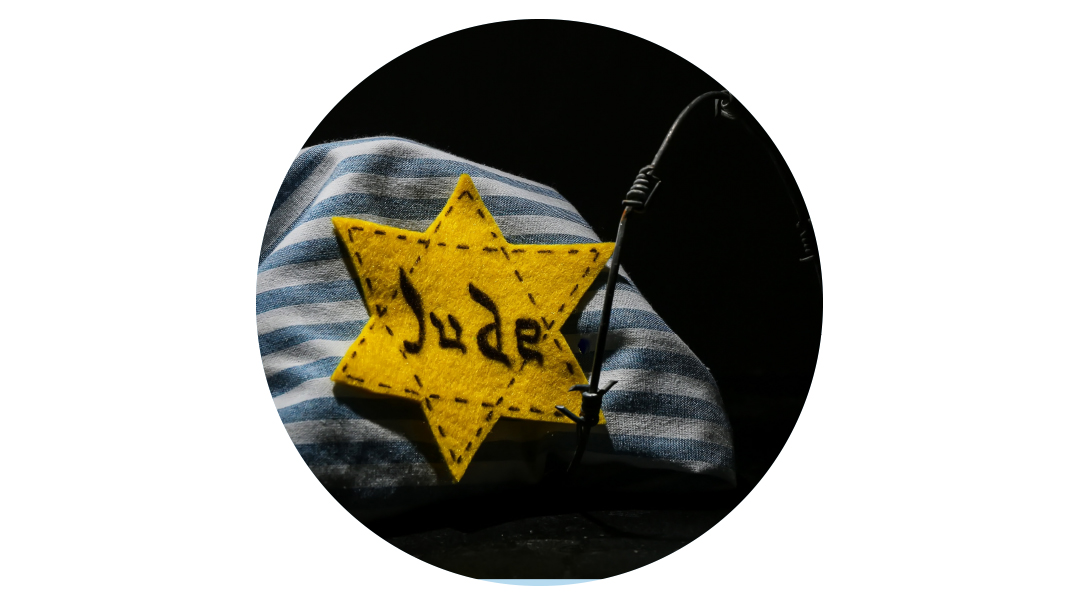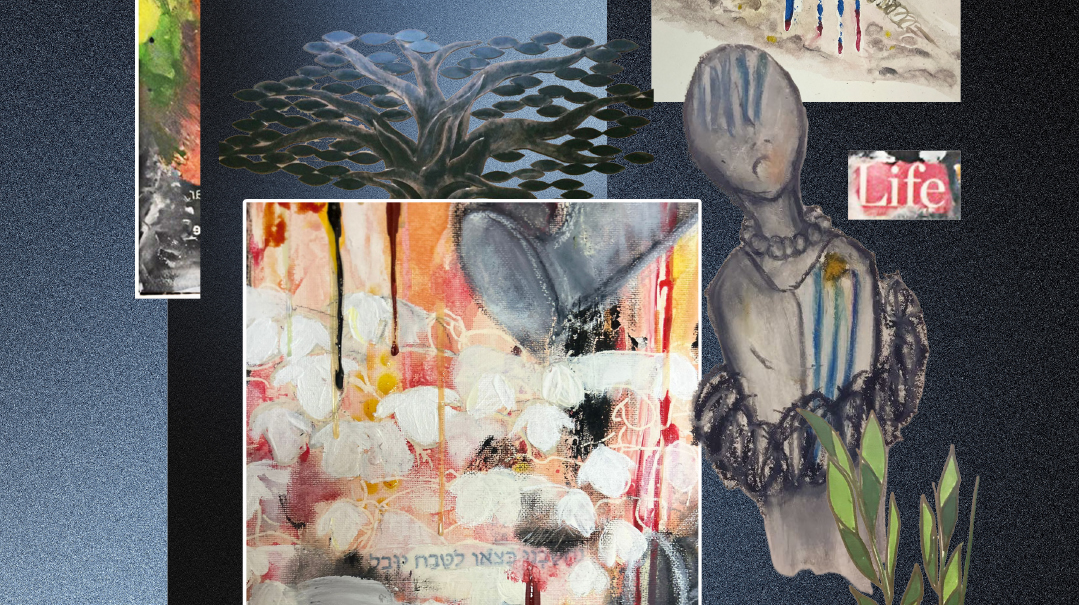Meet… Dr. Rosalyn Livshin
| July 30, 2024Dr. Rosalyn Livshin is a British historian who collects oral testimonies from refugees and Holocaust survivors

I was born in Sunderland, near Gateshead, and moved to Manchester to study history at the University of Manchester. I met my husband there, in Manchester, and I’ve lived there ever since.
I received my degree in the 1970s, and I’ve been conducting interviews with refugees and survivors to get their testimonies of what happened to them during the Holocaust ever since. One of my first projects was commissioned by the 45 Aid Society, a society of child survivors who had been brought to England by the British Government and having lost everyone, had become family to one another. In the 1980s, one of them died, without ever having recorded his story. The society members realized that if they didn’t record their stories, they’d take them with them to the grave.
At another point along the way, I worked for the Association for Jewish Refugees (AJR) to meet survivors and record their stories. I realized that the AJR projects didn’t include any chareidi survivors, as they hadn’t joined the refugee association. I persuaded them to allow me to conduct 25 interviews with chareidi survivors, which was really a credit to them, as they had no obligation to share their resources with nonmembers.
In the course of my career, working with eight different major projects and organizations, including the Shoah Foundation and the British Library, I must have interviewed around 200 refugees and survivors, arguably more than anyone else in Britain. I’m still doing interviews today, although obviously the number of survivors is much fewer now — I’ve just been told of a survivor who’s in her nineties and has quite a story to tell, and am in the process of setting up an interview.
Speaking for the First Time
When I started doing this, it was the first time these survivors were telling their stories. Until then, they’d pushed their experiences aside. They often hadn’t even talked to their children or spouses about it, and listening to these interviews was often the first their immediate families heard about their experiences.
People will actually relive the feelings and emotions when sharing their stories, however many years later, and they will cry. Steering them past this to continue the interview can be tricky. I always make sure there is a box of tissues next to them, and a glass of water, and give them space to make use of these when necessary. I always keep recording unless they ask us to stop, because showing their ongoing suffering is a very integral part of the testimony recording. After a few minutes giving them space, I then ask, “What happened next?” and this encourages them to collect their thoughts and move beyond that painful picture. I’ve never had to stop an interview. However painful it is, people want to tell their story; they want it to be known.
I’ll never forget the first interview I did. It’s not possible to forget the first one. My family was in England during the war, and my father and uncle fought in the British army, but some of my husband’s family had been in Europe, and this interview was with his mother’s cousin. She’d been born in Lithuania, and hid in the forests with her sister when the killing squads arrived. She’d spent the war fighting alongside the local partisans, and had the most amazing story to tell — and I was the first to hear it. She hadn’t even told her daughter.
Testimonies That Stand Out
I’ve heard a lot of traumatic stories. The story that stands out the most was with Mrs. Sori Kraus, who had been born in Czechoslovakia, and escaped to Hungary with her parents and sister to outrun the Nazis. She had been smuggled out of the Munkacevo ghetto and left Hungary on the Kastner Transport, which was diverted to Bergen Belsen. I did many interviews with her, and these ended up being turned into a full-length book, Sori’s Story, written by Devora Gliksman and published by Feldheim.
Another one that stands out was an interview with a petite chassidish woman. As a teenager, she’d found herself in France when the war broke out, so she joined the French Underground and saved lives as a courier delivering forged documents. Eventually she was caught, and at that stage she was looking after a group of children, all of whom were put on a train to Auschwitz. She was young and pretty, and a guard offered to smuggle her off the train, but she wouldn’t leave the children. She went on with them to Auschwitz, and the children perished, while she survived through several work camps. After the war, she came back to France and continued her underground activities, joining an underground network smuggling people to Palestine. She actually won the highest military honor from the French military for her activities in World War II. She married and came to Manchester, and brought up generations of chassidic Jews. I don’t know how much they knew, or wanted to know, of her activites. She was an amazing woman, but she suffered much through her life. Her experiences had left a painful streak in her that she couldn’t get rid of. A doctor once told her, “I know they managed to get you out of Auschwitz, but I can’t get Auschwitz out of you.”
Another story that stands out in my mind was an interview with a woman who told me that she wouldn’t have much to say, as she had been a young child and remembered very little. But we were interested in hearing about her postwar experiences, so she agreed to be interviewed. As she started talking, she realized she remembered much more than she’d thought. She’d been born in Hungary, and her family of four had gone into hiding in 1944 when the Germans invaded. Her father owned a factory, and the non-Jewish foreman agreed to hide them and bring them food. Without telling him, they hid another 24 people who had begged them to save them as well from deportation to Auschwitz. There were 28 people in that attic, sharing food meant for four, with a single bucket for a bathroom, and a candle for heating a pot.
One day the foreman’s wife came to tell them that her husband had started going to the pub, and she was frightened he’d let something slip while drunk. She asked them to leave before they were all caught. Two teenage boys hiding with them agreed to go out in disguise to try to contact the Resistance, but they never came back. Another two were willing to go, and they were successful. This woman was able to remember being smuggled over the border to Romania in the middle of the night, where she and her family survived the rest of the war.
Trauma Support
It’s important to note that survivors witnessed the most horrific things. People tended to think that once the war finished, that was the end of it. But survivors suffered all their lives with what they witnessed and went through. Even if they could forget about it during waking hours, it caught up with them at night. I still think of this man who participated in a video interview years ago. When he reached the part of his story where he witnessed the death of his family, he had to ask his wife to come sit next to him while describing it. I feel for him very strongly, as his wife has since died. He suffered from terrible nightmares, and I don’t know how he copes without her.
In those early days, there wasn’t really so much awareness about mental health. The survivors who immigrated to England were expected to get on with their lives. There was no counseling, therapists, or psychologists helping them get through things. They were just meant to pick up the pieces and move on, and it’s amazing how many managed to do that. They might have suffered at night, but during the day, they led normal lives. They married, had a family, rebuilt.
Nowadays we’re much more aware of the need for trauma support, and the need to support the interviewers as well. When I started doing it, it was just a job and you were expected to get on with it. I never had counseling, and baruch Hashem I never needed it. I had an inner sense that told me when I was or wasn’t able to do such interviews; for example, every time I had a baby, I’d do other work around the projects, but I knew I couldn’t listen to the most terrible things happening to children and families while I had a baby at home. It was too close. I knew when I was ready to restart as well.
And while the stories don’t affect my sleep, I hold people’s memories in my head, and I’ll never be able to forget them. Eli Wiesel once said that whoever listens to a witness becomes a witness themselves, and I do feel that I’m also a living witness of some of the horrors.
Reliability
A common question about oral history challenges the reliability of these testimonies. Oral history isn’t about providing facts and figures, names and dates. It’s understanding the personal experience. When you interview a survivor or a refugee, it’s a subjective account of their life. And that’s the power of oral history; it cuts through faceless figures. You can hear the abstract number “six million,” but a personal account helps you understand a sliver of what happened.
Keeping the Holocaust Relevant
We’re now nearly 80 years after the Holocaust, and the number of survivors is dwindling. These testimonies are really important for keeping the knowledge of the Holocaust alive for the time when survivors will no longer be with us. I spoke at an international conference last year, where one of the main focuses was discussing how to keep the Holocaust relevant for new generations.
One of the ideas was to conduct future interviews in a way that a 3D hologram could be created for future generations to interact with the interviewee and ask them questions, in order to feel as though the survivor was there with them, although they’re no longer alive. Some libraries are already doing that. We’re also making sure that the testimonies are online and accessible through a portal so anyone can access them.
Their Lessons and Legacy
These interviews have influenced the way I live my life. I carry around other people’s memories, their fears, and their hopes. This has made me more attuned to growing anti-Semitism, and the need to fight it. We have to learn from history not to ignore what’s going on around us, or assume it’ll go away by itself. We need to be aware of what’s happening.
I’m also very grateful to Hashem that I had the opportunity to bring up Jewish children and see my grandchildren live fully Jewish lives, when so many just 80 years ago couldn’t do that.
I learned an important life lesson from one of the interviewees, who was a young boy who Dr. Solomon Schonfeld had brought over to England as a refugee after the war. He’d joined the Gateshead Yeshiva, and within a few weeks had contracted scarlet fever. He was taken into isolation in Newcastle hospital and lay there for weeks on end, unable to communicate with anyone. He promised himself that he would never let anybody else go through what he was going through, and when he reached adulthood, he became very active in the Manchester community and went out of his way to help everybody. I saw how he took the positive out of that negative experience, and I try to live that way as well.
What’s your favorite way to relax?
Bird-watching, and walking in the countryside.
What book have you read recently?
Ben Macintyre’s nonfiction Double Cross, describing how the British fooled the Germans into believing that the D-Day landings would take place in Norway and Calais, rather than Normandy.
If you couldn’t be an oral historian, what would you be?
I don’t know. I love being an oral historian, I don’t think I’d want to be anything else! I had actually been accepted to university to study law, but I changed my mind and switched to history at the last minute. I was already walking around with a tape recorder at a very young age, interviewing people, without even knowing that would be my career. I have other jobs as well — genealogy, catering — but I love oral history.
(Originally featured in Family First, Issue 904)
Oops! We could not locate your form.







